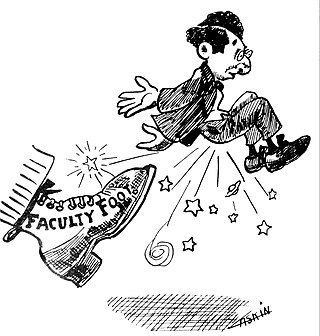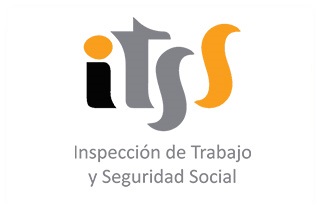Labour laws, labour code or employment laws are those that mediate the relationship between workers, employing entities, trade unions, and the government. Collective labour law relates to the tripartite relationship between employee, employer, and union.

United Kingdom labour law regulates the relations between workers, employers and trade unions. People at work in the UK have a minimum set of employment rights, from Acts of Parliament, Regulations, common law and equity. This includes the right to a minimum wage of £10.42 for over-23-year-olds from April 2023 under the National Minimum Wage Act 1998. The Working Time Regulations 1998 give the right to 28 days paid holidays, breaks from work, and attempt to limit long working hours. The Employment Rights Act 1996 gives the right to leave for child care, and the right to request flexible working patterns. The Pensions Act 2008 gives the right to be automatically enrolled in a basic occupational pension, whose funds must be protected according to the Pensions Act 1995. Workers must be able to vote for trustees of their occupational pensions under the Pensions Act 2004. In some enterprises, such as universities or NHS foundation trusts, staff can vote for the directors of the organisation. In enterprises with over 50 staff, workers must be negotiated with, with a view to agreement on any contract or workplace organisation changes, major economic developments or difficulties. The UK Corporate Governance Code recommends worker involvement in voting for a listed company's board of directors but does not yet follow international standards in protecting the right to vote in law. Collective bargaining, between democratically organised trade unions and the enterprise's management, has been seen as a "single channel" for individual workers to counteract the employer's abuse of power when it dismisses staff or fix the terms of work. Collective agreements are ultimately backed up by a trade union's right to strike: a fundamental requirement of democratic society in international law. Under the Trade Union and Labour Relations (Consolidation) Act 1992 strike action is protected when it is "in contemplation or furtherance of a trade dispute".

Termination of employment or separation of employment is an employee's departure from a job and the end of an employee's duration with an employer. Termination may be voluntary on the employee's part (resignation), or it may be at the hands of the employer, often in the form of dismissal (firing) or a layoff. Dismissal or firing is usually thought to be the employee's fault, whereas a layoff is generally done for business reasons outside the employee's performance.
Labor rights or workers' rights are both legal rights and human rights relating to labor relations between workers and employers. These rights are codified in national and international labor and employment law. In general, these rights influence working conditions in the relations of employment. One of the most prominent is the right to freedom of association, otherwise known as the right to organize. Workers organized in trade unions exercise the right to collective bargaining to improve working conditions.

The Employment Relations Act 1999 is an Act of Parliament of the United Kingdom. It made significant amendments in UK labour law to the Trade Union and Labour Relations (Consolidation) Act 1992.

An employment agency is an organization which matches employers to employees. In developed countries, there are multiple private businesses which act as employment agencies and a publicly funded employment agency.
Migrant domestic workers are, according to the International Labour Organization’s Convention No. 189 and the International Organization for Migration, any persons "moving to another country or region to better their material or social conditions and improve the prospect for themselves or their family," engaged in a work relationship performing "in or for a household or households." Domestic work itself can cover a "wide range of tasks and services that vary from country to country and that can be different depending on the age, gender, ethnic background and migration status of the workers concerned." These particular workers have been identified by some academics as situated within "the rapid growth of paid domestic labor, the feminization of transnational migration, and the development of new public spheres." Prominent discussions on the topic include the status of these workers, reasons behind the pursue in this labour, recruitment and employment practices in the field, and various measures being undertaken to change the conditions of domestic work among migrants.

The Gangmasters and Labour Abuse Authority (GLAA) is the foremost intelligence and investigative agency for labour exploitation in the UK. Its role is to work in partnership with police and other law enforcement agencies such as the National Crime Agency to protect vulnerable and exploited workers and disrupt and dismantle serious and organised crime.
Adams v. Tanner, 244 U.S. 590 (1917), was a United States Supreme Court case in which the Court held that a Washington state law that prohibited employment agencies was unconstitutional.
United Kingdom agency worker law refers to the law which regulates people's work through employment agencies in the United Kingdom. Though statistics are disputed, there are currently between half a million and one and a half million agency workers in the UK, and probably over 17,000 agencies. As a result of judge made law and absence of statutory protection, agency workers have more flexible pay and working conditions than permanent staff covered under the Employment Rights Act 1996.

The Gangmasters (Licensing) Act 2004 is an Act of the Parliament of the United Kingdom that regulates the agencies that place vulnerable workers in agricultural work, and the shellfish collecting and packing industries (s.3). It is the most recent plank of UK agency worker law. It establishes the Gangmasters Licensing Authority (s.1), which requires that all such agencies have a licence before they operate, and adhere to proper labour practice standards. Most of its provisions came into effect after 2005. The immediate cause of the legislation was the 2004 Morecambe Bay cockling disaster, where 21 Chinese immigrant labourers were left to drown by their employers off the coast of Lancashire as the tide swept in around them.
The Employment Agency Standards Inspectorate (EAS) is located within the Department for Business and Trade. EAS is the government regulator for the private recruitment sector, regulating all employment agencies and employment businesses that provide work-finding services in Great Britain. It takes complaints and investigates breaches of the Employment Agencies Act 1973 and the Conduct of Employment Agencies and Businesses Regulations 2003. It also conducts inspections to ensure agencies' compliance with the legislation.
Agency worker law refers to a body of law which regulates the conduct of employment agencies and the labour law rights of people who get jobs through them. The typical situation involves the person going to an employment agency and then the employment agency sending the person to an actual employer for proper work.
Iranian labor law describes the rules of employment in Iran. As a still developing country, Iran is considerably behind by international standards. It has failed to ratify the two basic Conventions of the International Labour Organization on freedom of association and collective bargaining, and one on abolition of child labor. Countries such as the US and India have also failed to ratify many of these Conventions and a mere 14 other Conventions, only 2 since the Islamic Revolution.

The Employment Act 2008 is an Act of the Parliament of the United Kingdom which reformed a wide range of different provisions of UK labour law. It is an amending statute, and therefore simply altered pre-existing law to remedy perceived problems in the law's operation to do with dispute resolution, strengthen enforcement of the minimum wage and employment agency standards and to conform with updated case law on trade unions, in particular, ASLEF v United Kingdom.
International labour law is the body of rules spanning public and private international law which concern the rights and duties of employees, employers, trade unions and governments in regulating Work and the workplace. The International Labour Organization and the World Trade Organization have been the main international bodies involved in reforming labour markets. The International Monetary Fund and the World Bank have indirectly driven changes in labour policy by demanding structural adjustment conditions for receiving loans or grants. Issues regarding Conflict of laws arise, determined by national courts, when people work in more than one country, and supra-national bodies, particularly in the law of the European Union, have a growing body of rules regarding labour rights.

Lebanon has a gone through many stages in its absorbing of migrant workers, both before and after the Lebanese Civil War. This development has led to multiple problems regarding integration in Lebanese society. The ambiguity of the Kafala system in Lebanon has resulted in migrant domestic workers facing many legal issues and violations to their basic human rights. The government has largely been inactive and ineffective in implementing laws to protect migrant domestic workers but has attempted to manage the situation but to little avail.

The Labour and Social Security Inspectorate (ITSS) is a Spanish autonomous agency in charge of the control of the compliance with labour and social security legislation. It also offers technical advice and, where appropriate, conciliation, mediation and arbitration in these matters. The ITSS is, therefore, the apex of the Labour and Social Security Inspection System.

The Conduct of Employment Agencies and Employment Businesses (Amendment) Regulations 2022 is a statutory instrument of the Parliament of the United Kingdom. The regulations removed Regulation 7 of the Conduct of Employment Agencies and Employment Businesses Regulations 2003, which prevented employment agencies from supplying agency workers to employers to replace workers taking part in official industrial action. The regulations were struck down in a High Court case in July 2023, and will be quashed from 10 August 2023.








